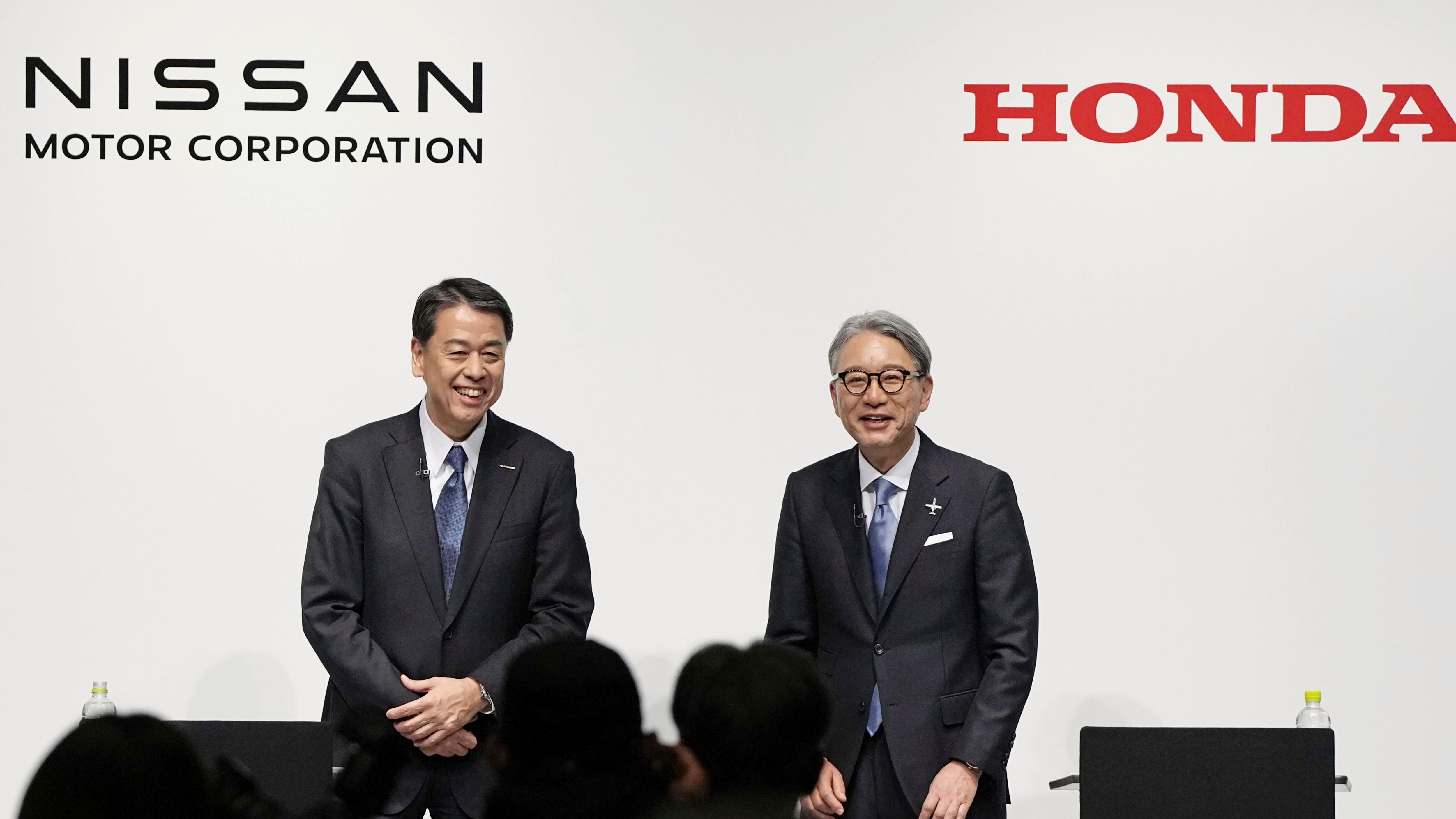TOKYO (AP) — Japanese car manufacturers Honda and Nissan have announced plans to merge, forming the third largest car manufacturer in the world by sales, as the industry undergoes dramatic changes in its transition away from fossil fuels.
The two companies said they had signed a memorandum of understanding on Monday and that the smallest member of the Nissan alliance, Mitsubishi Motors, had also agreed to join the discussions to integrate their businesses.
PUBLICIDAD
"We anticipate that if this integration materializes, we will be able to offer even greater value to a broader customer base," said Nissan's CEO, Makoto Uchida, in a statement.
Car manufacturers in Japan have fallen behind their major rivals in electric vehicles and are trying to cut costs and make up for lost time.
News of a possible merger emerged earlier this month, with unconfirmed reports indicating that discussions about a closer collaboration were partly driven by the aspirations of Taiwan's iPhone manufacturer, Foxconn, to partner with Nissan, which has an alliance with France's Renault SA and Mitsubishi.
A merger could result in a colossus valued at over 50 billion dollars based on the market capitalization of the three car manufacturers. Together, Honda and the alliance of Nissan with Renault SA of France and the smaller car manufacturer, Mitsubishi Motors Corp., would gain scale to compete with Toyota Motor Corp. and Volkswagen AG of Germany. Toyota has technological partnerships with Mazda Motor Corp. and Subaru Corp. from Japan.
Even after a merger, Toyota, which launched 11.5 million vehicles in 2023, would still be the top Japanese car manufacturer. If they were to join forces, the three smaller companies would produce around 8 million vehicles. In 2023, Honda manufactured 4 million and Nissan produced 3.4 million. Mitsubishi Motors made just over 1 million.
Nissan, Honda, and Mitsubishi announced in August that they would share components for electric vehicles such as batteries and would jointly research software for autonomous driving to better adapt to the dramatic changes focused on electrification, following a preliminary agreement between Nissan and Honda established in March.
Honda, the second largest car manufacturer in Japan, is widely seen as the only likely Japanese partner capable of rescuing Nissan, which has struggled after a scandal that began with the arrest of its former chairman Carlos Ghosn in late 2018 on charges of fraud and misuse of company assets, allegations he denies. He was eventually released on bail and fled to Lebanon.
Speaking on Monday to journalists in Tokyo via a video link, Ghosn ridiculed the planned merger as a "desperate move."
According to Sam Fiorani, vice president of AutoForecast Solutions, Honda could obtain large body-on-frame SUVs like the Nissan Armada and the Infiniti QX80, which Honda does not have. These vehicles offer great towing capabilities and good off-road performance.
Nissan also has years of experience in building batteries and electric vehicles, as well as gas-electric hybrid powertrains that could help Honda in the development of their own EVs and the next generation of hybrids, he said.
But the company announced in November that it was cutting 9,000 jobs, or approximately 6% of its global workforce, and reducing its global production capacity by 20% after reporting a quarterly loss of 9.3 billion yen ($61 million).
Recently, Nissan reorganized its management and its CEO, Makoto Uchida, cut his salary by 50% to take responsibility for the financial problems. He stated that Nissan needed to be more efficient and better respond to market preferences, rising costs, and other global changes.
Fitch Ratings recently downgraded Nissan's credit outlook to "negative," citing deteriorating profitability, partly due to price cuts in the North American market. However, it noted that Nissan has a strong financial structure and solid cash reserves amounting to 1.44 trillion yen (9.4 billion dollars).
The price of Nissan's shares has also fallen to the point that it is considered somewhat of a bargain.
On Monday, their stocks traded in Tokyo gained 1.6%. They jumped more than 20% after news of a possible merger spread last week.
Honda's shares rose by 3.8%. Honda's net profit decreased by almost 20% in the first half of the fiscal year from April to March compared to the previous year, as sales were affected in China.
The merger reflects a trend throughout the industry towards consolidation.
During a routine briefing on Monday, Cabinet Secretary Yoshimasa Hayashi said he would not comment on the details of the automakers' plans, but stated that Japanese companies need to remain competitive in the rapidly changing market.
"As the business environment surrounding the automotive industry undergoes significant changes, with competitiveness in storage batteries and software becoming increasingly important, we expect necessary measures to be taken to survive international competition," Hayashi said.
I'm sorry, but it seems like there is no text to translate. If you have any questions or need assistance, feel free to ask!
This story was translated from English by an AP editor with the help of a generative artificial intelligence tool.
